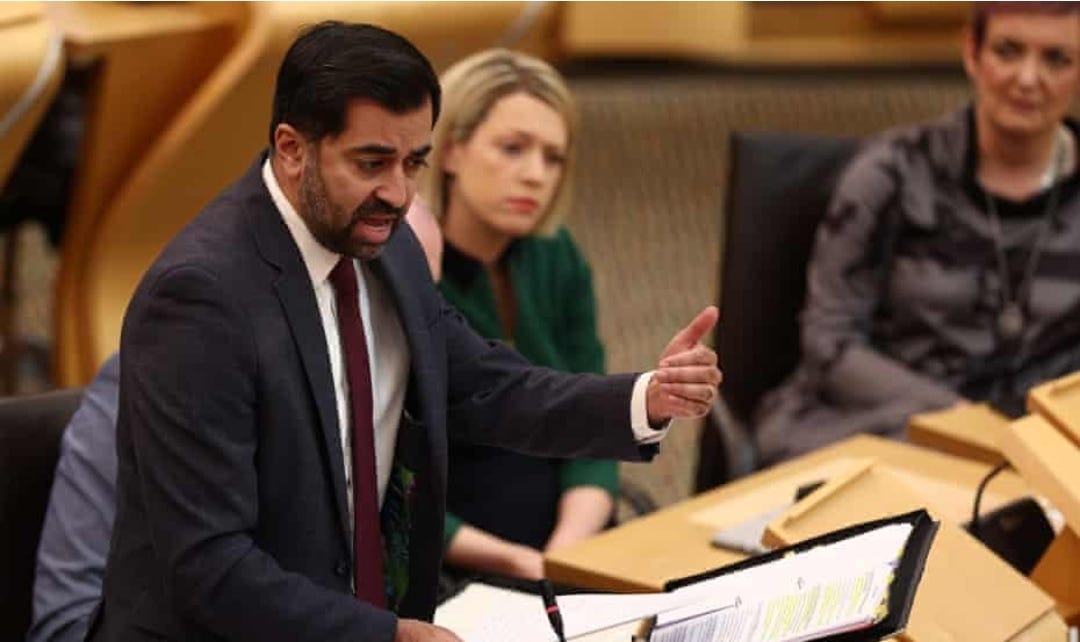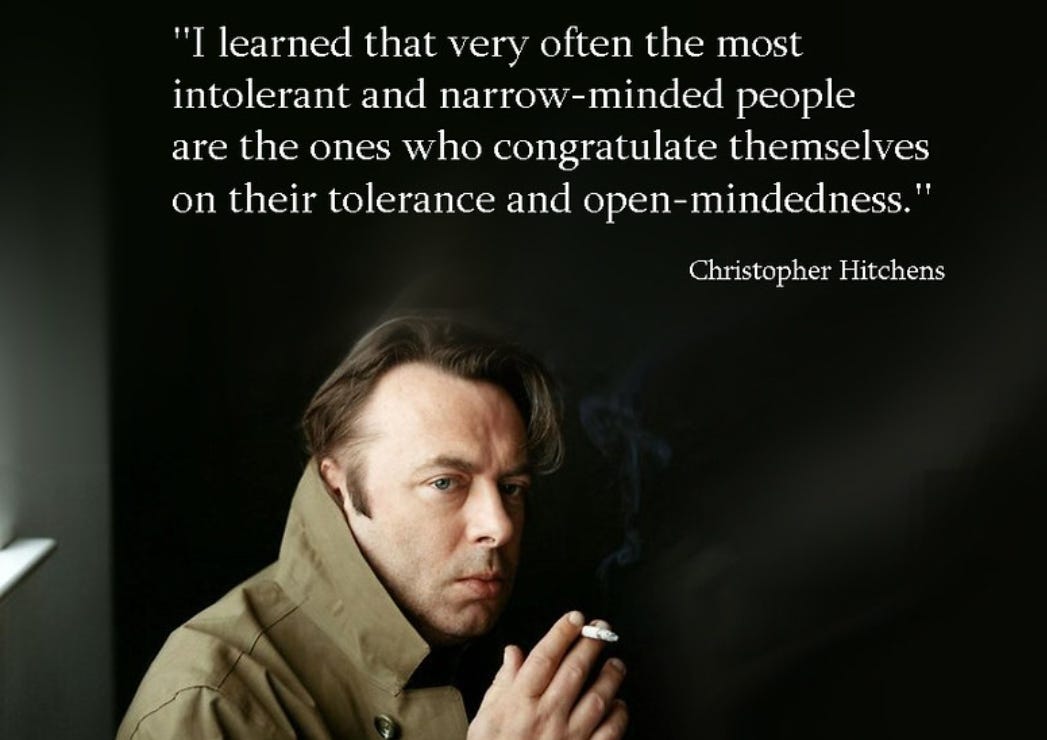My new book Grand Narrative is being released chapter by chapter for paid subscribers.
CONTENTS:
PROLOGUE: The Oxford Union has betrayed British Values
INTRODUCTION: Who’s afraid of grand narrative?
BOOK 1: LANGUAGE: ON THE MODERN TOWER OF BABEL
1.1: Living a Lie
1.2: “Thou Shalt not Lie”: On the Destruction of Worlds
1.3: Corruption of the Masses
1.4: The Dangerous Confusion of Language
1.5: The Great Genocide Lie
1.6: Hands off Churchill!
1.7: In Praise of the British Empire for Abolishing Slavery Worldwide
1.8: Declaring War on Post-Modernism
1.8.1: Part 1: With “Authentic Feeling”
1.8.2: Part 2: A Genealogy of "Woke" Linguistics
1.9: The Problem with Atheism
1.10: Justice Lost
1.11: Word Inflation
1.12: Freedom of speech?
1.13: Democracy cannot survive in a world that accepts lies as truth
1.14: The Silent Image
BOOK 2: TRUTH: ON THE BIRTH OF HUMAN AGENCY
BOOK 3: SOVEREIGNTY: ON THE DEMOCRATIC NATION
BOOK 4: NARRATIVE: ON THE FULFILMENT OF MEANING
BOOK 5: FREEDOM: ON WRITING THE NEXT CHAPTER
BOOK 6: COVENANT: ON CREATING A NATION OF NARRATIVE
BOOK 7: NATIONHOOD: ON EXPANDING THE NARRATIVE
BOOK 8: LEADERSHIP: ON REACHING THE PROMISED LAND
BOOK 9: PEACE: THE END OF THE JOURNEY
Chapter 1.12] Freedom of Speech?
The battle for humanity's future has begun
[Image: Sir/Saint Thomas More fighting for his rights in a land of Royal tyranny. From the film “A Man for All Seasons”]
Free Speech Threatened
We live in a world of contradictions; a world of both too much and too little free speech. Both and simultaneously; the devil joining hands with the deep blue sea.
On Free Speech abused, I refer the reader to the sum of the previous chapters. But let us focus presently on the threats. We need not wait patiently, they being cruelly evident for all to see. From one powerful perspective, the threat to our linguistic freedom is teetering dangerously near the precipice. Newly-enthroned Social Media censors deem what is acceptable and what is not. They may delete long-established accounts without even a moment’s notice. Not even a warning having been given, your long slaved-upon expressions of reason may be removed1. In extremis, all you have worked for may be lost, recourse to appeal having been unjustly denied. Put briefly, the rule of law is entirely absent in the Wild West of the internet. Freedom of expression tyrannically denied by bots in the dark.
Our sanctuary should be the Academy, but seeking asylum, we roll back in horror. For in our benighted epoch, the university is an unsafe space. Not, as claimed, for fashionable minorities, but rather for the discovery of truth. In the supposed home of veritas, speakers are cancelled, self-censorship is rampant and appeals to academic fashion reign supreme. The eternal duty to seek that which is so inexplicably abandoned. Self-declared “justice” has condemned Truth to oblivion2. As for the university, so for society beyond. Where employment, social acceptability - nay your very future! - could be put at stake; where one censor-unfriendly sentence could destroy decades of toil; self-silence becomes one’s favourite tipple. Better to reject the True than to embrace confounded loneliness.
And then there is the Religion of Peace. Hold your tongue, my friend: or else all is lost!3 To say that the majority of that minority is peaceful is true. Hard-working: to be sure. And who can deny that they want the best for their children. But to condemn their bulging extremes is surely right and our right. It is our right and their responsibility. The silence of their mainstream may no longer be tolerated in days where synagogues must be guarded and trips to Nice lead to hell. To end that fearful hate; to cut down the ghetto walls and liberate the vulnerable from radicalised helplessness; that is our collective duty. Yet we sit in silence, the bomber’s holy sword standing above us in menace.
But perhaps the greatest threat to Western free speech comes in the form of Hate Speech legislation; laws granting the police the role of censor. Acts making of judges the guardians of silence.
So let us speak of one such law. It came into force on 1 April 2024; and it’s cursed name is the Hate Crime and Public Order (Scotland) Act4. Judging by the title alone, who could oppose it? Is not hate an evil and public order a necessity? But if you look below the surface, we see a law that is not only objectionable, but worse: a slippery slope to tyranny. So let us examine the law in detail, a case study in modern governmental overreach.
SCOTLAND’S HATE LAW: A Case Study
What does it provide for? How does it differ from current legislation? What are the objections?
[Image retrieved from The Guardian: Then Scottish First Minister Hamza Yousaf in the Scottish Parliament]
What does the law seek to achieve? In the words of the Scottish government’s own website:
“It introduces new offences for threatening or abusive behaviour which is intended to stir up hatred based on prejudice towards characteristics including age, disability, religion, sexual orientation, transgender identity and variations in sex characteristics.”5
The same text claims that the laws are a mere extension of (they “will add to…”) the UK’s long-standing laws against racial hatred in place since 1986. But the law differs from the Public Order Act of that year in several significant respects. For example, sections 4 and 5 of the 1986 law states that to be guilty of an offence, the alleged perpetrator must have had intent to stir up racial hatred. And although an offence may be committed in a public or private space, section 4(2) states:
“No offence is committed where the words or behaviour are used, or the writing, sign or other visible representation is distributed or displayed, by a person inside a dwelling and the other person is also inside that or another dwelling.”
The new Scottish legislation is quite different. The intent requirement, a mainstay of criminal legislation, is replaced by a condition related to a perception of behaviour:
Clause 4(1)b states that a person commits an offence if they behave in a manner “that a reasonable person would consider to be threatening, abusive or insulting”. Moreover the protection for perceived hatred in a private dwelling has been removed. So similar to the situation in old East Germany and uncomfortably reflecting the reality of Inquisition-era Spain, anyone can be denounced by jealous neighbour or irate relative. To quote the words of Dr Michael Foran, lecturer in public law at the University of Glasgow, ‘The new legislation “brings the criminal law into your home” even when you are having private conversations.’6
Section 9 of the legislation claims to protect freedom of expression in line with the Human Rights Act, although given that this is a qualified right under the Convention, comfort we should take from this is unclear. It continues that discussion or criticism of matters related to the protected characteristics (age, race etc) are not to be taken as threatening or abusive solely on the basis of there being such a discussion and/or criticism. Clause b of the same section is at pains to protect discussion and criticism of religion and religious beliefs in particular.
Much of the criticism of the new law has related to the listed protected characteristics which are no longer limited to race, nationality and ethnicity, but extend to age, disability, religion (“or, in the case of a social or cultural group, perceived religious affiliation”), sexual orientation, transgender identity and variations in sex characteristics7. Noting that sex has been omitted, and given the concerns about abusive men self-identifying as women, thereby putting girls and other females at risk in their safe spaces, JK Rowling took to Twitter in full condemnation of the new legislation. She even dared cash-strapped Police Scotland, who have pledged to investigate all alleged breaches of the law, to arrest her8. I don’t intend to speak more of this particular concern here as this is not intended to be a repetition of other articles written on the subject. JK is a good writer who can speak for herself. Who knows: perhaps she could make some money out of it?!
A Barrister’s Perspective
What I wish to speak of is three concerns, first from my perspective of being a qualified barrister, second from my perspective of being a British citizen from England and the third from the perspective of being a Jew. Through the former lens, I am concerned about the vague wording of the law and its necessarily unpredictable application. It will be left to Police Scotland and later the courts to determine the scope of the new legislation. The former will decide who to investigate and the latter will be left to interpret these most wooly of clauses.
For what is the yardstick of good law? Not just law or best law, but good law. It’s simple: to promote predictability. To encourage certainty to as great an extent as possible. Tooled with the words of their lawmakers, citizens should know what kinds of behaviours will land them in the dock. Now a law may be just or unjust; it may be worthy of immediate repeal; but one thing it absolutely must be is certain. Without certainty in the domain of freedom of expression, people will cower in fear, self-censor and express their beliefs tepidly. Comedians will be unsure of “acceptable jokes”. Satirists will decline to satire9. TV producers will commission experimental dramas reluctantly. Simply put, with legislative vagueness, the rule of law is at stake, with the ruling party having the tools to go after its enemies and having the discretion to leave the offence/offense caused by their allies well alone. The Scottish Parliament has thus committed two crimes: it has attacked freedom of expression, denying its people of their rights, and it has done so with dangerously malleable words, denying its people the protections of the rule of law. And all in the name of tolerance and respect.
Why did I come to Spain, the country in which “Grand Narrative” is being drafted? The reasons are many and complex. But I cannot ignore the fact that in the UK I didn’t feel free to speak. For certain, I could criticise the government of the day to my heart's content (the Westminster government that is). But on a range of social, religious and foreign policy issues, the public square felt increasingly restrictive with the walls closing in on me. Although members of the then ruling British administration may have agreed with many of my views (and disagree with others), they were powerless against the culturally elitist zeitgeist. Silence was the order of the day. Constrictingly so.
In Spain, the situation is no doubt very similar. But I don’t really live in Spain. I am in an international bubble, floating seamlessly around the streets, surrounded by the masses of Spanish people who live in their own political reality. It’s like being a fly on the wall in a rural idyll. As a generalisation, my neighbours have little interest in or understanding about the topics of which I speak. And it’s in a different language. So I have no need to guard my speech. As long as I keep off topics which could offend Spanish sensitivity, I’m living in my own freedom of expression heaven. And it’s rather wonderful. The people of Scotland are crying out for my ability to raise difficult questions in a legally and socially protected way.
The English Perspective
It is also deeply ironic that the leader of the SNP speaks to us about hate. For of all the hatreds that exist in Scotland, by far the most pernicious is the anti-English hate stirred up, pedaled and disseminated by the ruling party10. It uses ideas of difference, Scottish exceptionalism, imagined history and other tactics to drum up support for separation on a false prospectus. It has succeeded for years in achieving huge electoral success, largely on the basis that Scottish people have different attitudes to their English neighbours; whatever the dubious data-backed evidence for such claims11.
Then Scottish First Minister Hamza Yousaf may believe that there is hate in Scotland towards minorities, both racial and sexual. But for a country with a 96% white majority to have an Asian-origin First Minister would belie these claims, Or at least put them into historical perspective. By contrast the SNP electoral triumphs, where they have consistently received 40-50% of the vote, show where the national hatreds really lie. And the SNP, backed by no small army of nationalist rabble rousers, is the political vessel . If Mr Yousaf wants to tackle hate, he should begin at home; and put to bed the idea that Scotland and England are significantly distinct in social views. Granted, this small c conservative nation rarely votes Conservative12, but so does the not at all conservative City of Liverpool. There the Conservatives never win. Yet North West England’s independence is never proposed. And hatred of “the South” is far from in evidence.
The Jewish Perspective
And there’s more. For there is another perspective which is entirely forgotten amongst the culture war driven discussion of transgender issues, the worries of women’s groups, the Stasi-like snooping, the victim-centric rewriting of the common law principle of criminal intent and the SNP’s illiberal instincts. It is always forgotten. It is the Jewish perspective. Because for a government so intent on removing offense from public discourse in such an authoritarian way, it is perfectly content with offending Jewish people.
It is happy for ugly protests week after week on the topic of Israel-Gaza which easily fits into the bracket of an activity that a “reasonable person would consider to be threatening, abusive or insulting”.13 And even if a reasonable person doesn’t, Jews do. We consider the weekly hate-fests to be threatening, abusive and insulting yet the Scottish government remains mute.
It is happy for Jews to suffer intimidation on university campuses, be restricted from unwalkable streets in European capitals and to have to listen to perverse claims about “genocide”, concentrations camps and Nazism. It is happy for Jews to be called white Europeans who should “go back to where they came from” - the most egregious of racist sentiments - despite the fact that Jews are Middle Eastern and a plurality of Israelis are directly from Arab countries from which they were expelled. It is happy for neo-Marxist professors, American Congressmen and Islamist sympathisers to westsplain that Judaism “is just a religion” without bothering to ask Jews for their own opinions. It is even happy to divide the world into “white” Jews from Baghdad and “brown” Arabs from Baghdad. That’s got a name: apartheid mentality. And once more the Scottish government remains motionless.
It isn’t the reasonable man who decides what is offensive. It is the person who is offended; and that includes Jews. And make no mistake: the offenders intend to cause offence and they do it in public.
But though this be so, we don’t need any new law to protect Jews. In the first place, we should be regarded as an ethnicity under the original 1986 Act of Parliament. And secondly, and most importantly, we affirm the right to free speech. It is to this that we now turn.
*******
The Case for Free Speech
Turning from this case study, let us stop for a moment and reflect. Let us consider the arguments for near-unfettered free speech on the part of its most celebrated proponents. Despite acknowledging that there should be limits for incitement to violence, John Stuart Mill famously had a maximalist attitude towards the subject of expression. To briefly summarise his arguments made in On Liberty, whether a statement made is true, partially true or entirely false, it has a value from which we all benefit.14
If a statement is true, then we should welcome its widespread dissemination. A censor that is barring a true statement is barring the truth from being heard; and though at the time of pronouncement it may not be known to be true, it may yet be proved to be the case. Even if the entire world is of one mind and the one is in opposition, the single holdout may be speaking with veracity. If we are to extinguish their spark, then the light of veritas may depart forever. A censor that bars any statement is claiming infallibility. That being impossible, the decision makers should admit the limits of their knowledge and allow the elixir of unfettered debate to take hold.
Similarly, if a statement is but partially true, neither that would be a justification for limiting debate. To quote from the Ethics of the Fathers “Who is wise? He that learns from every man”15. Even if our interlocutors are imprecise, we may nonetheless learn from them. Behind the barrier of unsupported assertion, there may yet be a grain of truth that we would all do well to hear. When truly attending to the other, we should be able to listen past insult and inaccuracy and focus on what we can learn. To ban partially false statements, would, once more, be to claim infallibility. How can any imperfect human claim to have the ability to accurately distinguish between the true and the impartially true? Knowing the answer to this enquiry, we would do well to let the benefits of free speech work their magic.
Should a statement be entirely false, then John Stuart Mill has a time-honoured reply. True statements unchallenged become “dead dogmas”. They may well be true, but do we know why they’re true? Having the truth passed down from generation to generation leads us to forget the arguments that support it. Only when challenged by a patently false account can we summon the weapon of reason to defeat the devil and in so doing we understand our own perspective. In Mill’s reckoning, only by knowing your opponent’s case can you truly understand your own. Free speech allows the falsity to be spread, so much is clear, but through so doing, we reacquaint ourselves with truth. The faith of Mill is that the truth will out.16
In an earlier era, John Milton acquainted us with further dangers of the spiral into censorship.17 What kind of people would the government choose to censor? Those that they could rely upon to enforce their will.
That aside, what kind of person would even choose to be a censor?18 Those who believe in censoring the views of others, one suspects. Or those with ultra-conservative perspectives. Or, more worryingly, those would enjoy sorting through the kind of material that they would deny to others. Even if the censor were entirely impartial and immune to corruption, what decisions would they make? They would likely wave by any view, however offensive or polemical, that fit within the Overton Window of the time; but they would set their face against any controversy that challenged the fragile status quo. Thus, impartial censorship is a recipe for persistent conservatism. Impartial censorship is the ultimate guarantor against change.
Milton goes further. Even if we could agree upon what was true and appropriate in an entirely non-prejudicial manner, it is almost impossible to prevent the flow of information. Officialdom may try to stem the tide, but they are powerless against the tsunami of falsehood. The truth may out, but so will inverse; and inevitably so. If that were true in the age of Milton, then how much more must we affirm it in the age of the internet? Governments may try to fight misinformation. Reputable media may seek to “fact check”. But the conspiracy theories will keep on coming and hate will continue to seep bile. So we are left with no other option: we must fight the distortion out in the open. The Great Genocide Lie will never die despite our efforts; but underground, it may hide in the shadows; fester in a cacophony of silence.
The late Christopher Hitchens was perhaps the greatest modern defender of free speech. His main target was religion; the ability of clerics to silence reasoned conversation. There was no modern faith that was safe from his quick-witted tongue. Justified or otherwise, his attacks on Christianity and the Torah never waned. But most clearly in his sights was a different creed: the anti-conversational force of radical Islam.19 Those that would murder the journalists of Charlie Ebdo for a cartoon defiantly printed. Those that would issue fatwas against Rushdie and make the critic fearfully self-censor. With the bravery of a Genoese mercenary taking his last stand against the Ottoman, Hitchens held firm. Unwavering in his courage, no death threat could derail him; his every word a mocking riposte against the violence-wealding cowards.
I say not whether the criticisms of Hitchens were fair. Perhaps Charlie Hebdo were wrong to offend a minority? Perhaps Hitchens should have attended Yeshiva; a preliminary study before welding the axe? But that is not the issue. One can agree or disagree with his individual positions. That is the beauty of Free Speech. But what we must affirm, and with blood, is the right of Hitchens to speak; the right of Charlie Hedbo to offend; and their inspiring courage in the face of hate. We may be rather less sanguine than “Hitch” about Holocaust Denial20. We may cry that we have nothing to learn from the fraudulent historian and we must be unrelenting in saying so. But without his pioneering spirit - his and Gervais’ and the similarly valiant21- we would be denied the tools to reply. Free Speech is for them but also for us. We too have the right to speak up…and the duty.
Free Speech is right for us and a right for the Devil. The Law defends Lucifer so that we may dispose of the right at our moment of peril. It was never said better than by the Man for all Seasons22:
“William Roper: “So, now you give the Devil the benefit of law!”
Sir Thomas More: “Yes! What would you do? Cut a great road through the law to get after the Devil?”
William Roper: “Yes, I'd cut down every law in England to do that!”
Sir Thomas More: “Oh? And when the last law was down, and the Devil turned 'round on you, where would you hide, Roper, the laws all being flat? This country is planted thick with laws, from coast to coast, Man's laws, not God's! And if you cut them down, and you're just the man to do it, do you really think you could stand upright in the winds that would blow then? Yes, I'd give the Devil benefit of law, for my own safety's sake!”23
The Case for Limiting Free Speech (in a reality of civilisational demise)
But isn’t there a contradiction in my position? Government censorship is to be deplored. Academic departure from Truth is to be condemned. So much is accepted. But how can I at once speak of Babel and the rights of Babelians. Didn’t their freedom seal their fate?
Let us recall the sad reality: The Word is under threat, misused and increasingly meaningless. So wither free speech?
Keep reading with a 7-day free trial
Subscribe to Guerre and Shalom to keep reading this post and get 7 days of free access to the full post archives.

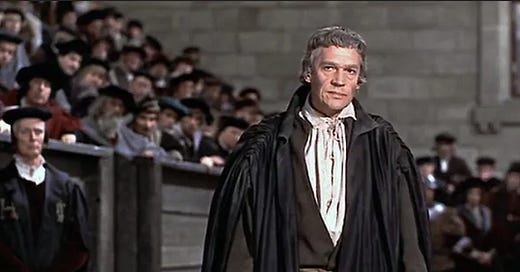




![Living a Lie [Grand Narrative, Chapter 1.1]](https://substackcdn.com/image/fetch/$s_!WsuS!,w_140,h_140,c_fill,f_auto,q_auto:good,fl_progressive:steep,g_auto/https%3A%2F%2Fsubstack-post-media.s3.amazonaws.com%2Fpublic%2Fimages%2Fca972889-18bb-4d7b-a496-c65cc50d7fa6_1035x696.jpeg)



![The Great Genocide Lie [Chapter 1.4]](https://substackcdn.com/image/fetch/$s_!ji7r!,w_140,h_140,c_fill,f_auto,q_auto:good,fl_progressive:steep,g_auto/https%3A%2F%2Fsubstack-post-media.s3.amazonaws.com%2Fpublic%2Fimages%2F04b0ba56-f1e5-4c92-a36a-85294ea84ccb_1014x735.jpeg)
![Hands off Churchill! [Chapter 1.5]](https://substackcdn.com/image/fetch/$s_!6scA!,w_140,h_140,c_fill,f_auto,q_auto:good,fl_progressive:steep,g_auto/https%3A%2F%2Fsubstack-post-media.s3.amazonaws.com%2Fpublic%2Fimages%2F2e1bc915-fb46-419c-8929-1cd34dd68648_841x695.jpeg)
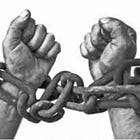
![Declaring War on Postmodernism [Part 1]](https://substackcdn.com/image/fetch/$s_!mjFX!,w_140,h_140,c_fill,f_auto,q_auto:good,fl_progressive:steep,g_auto/https%3A%2F%2Fsubstack-post-media.s3.amazonaws.com%2Fpublic%2Fimages%2F8c9ffcc6-cbef-4ed3-8b71-4ffb2764e360_833x888.jpeg)
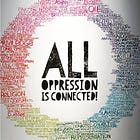
![The problem with atheism [Grand Narrative, Chapter 1.8]](https://substackcdn.com/image/fetch/$s_!Y1MH!,w_140,h_140,c_fill,f_auto,q_auto:good,fl_progressive:steep,g_auto/https%3A%2F%2Fsubstack-post-media.s3.amazonaws.com%2Fpublic%2Fimages%2Ff59f5f55-e287-4c2d-8e40-879a149d76dc_992x614.jpeg)



